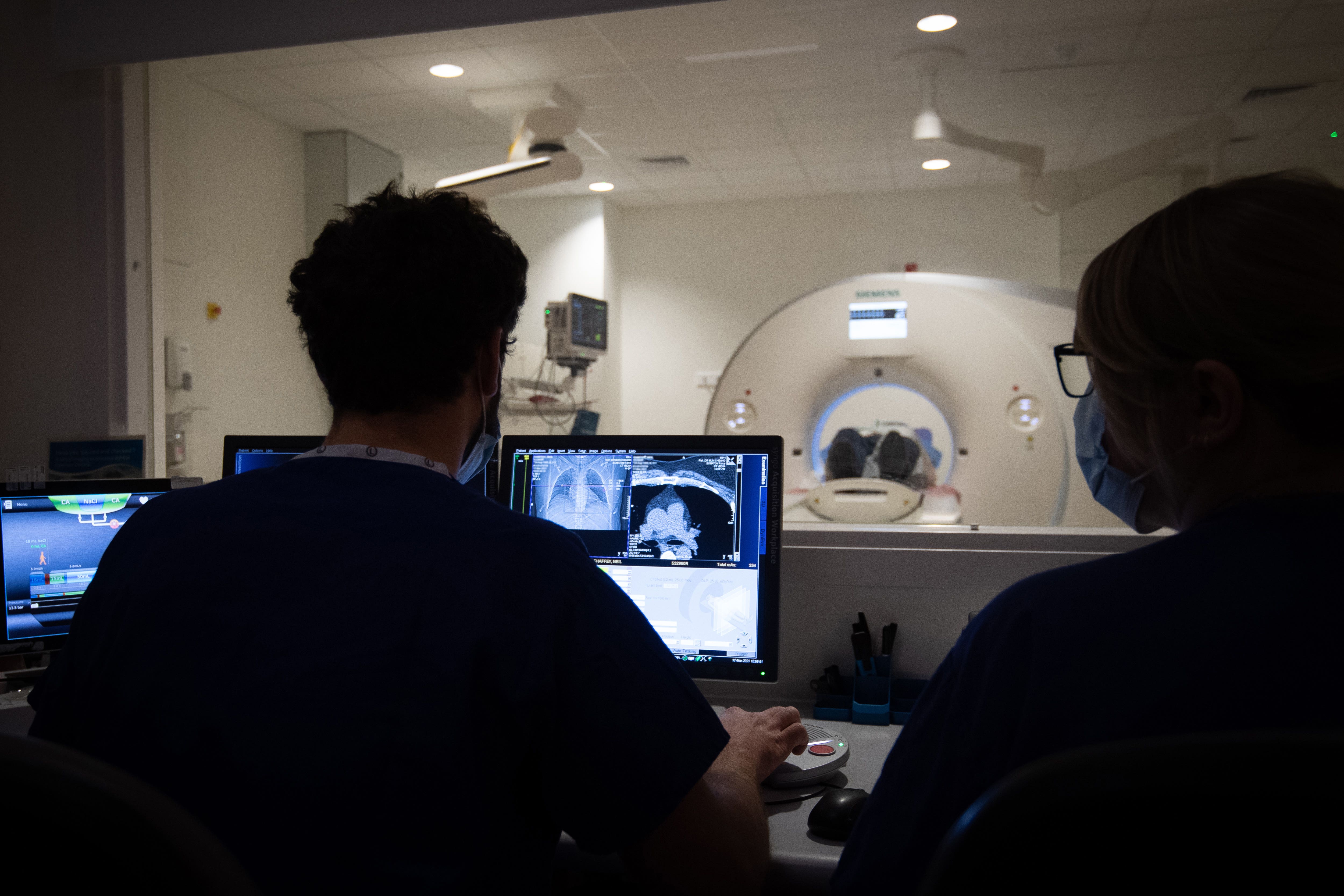AI platforms recommended for use to save doctors time
Draft guidance from the National Institute for Health and Care Excellence has given nine AI-powered platforms the green light

Your support helps us to tell the story
From reproductive rights to climate change to Big Tech, The Independent is on the ground when the story is developing. Whether it's investigating the financials of Elon Musk's pro-Trump PAC or producing our latest documentary, 'The A Word', which shines a light on the American women fighting for reproductive rights, we know how important it is to parse out the facts from the messaging.
At such a critical moment in US history, we need reporters on the ground. Your donation allows us to keep sending journalists to speak to both sides of the story.
The Independent is trusted by Americans across the entire political spectrum. And unlike many other quality news outlets, we choose not to lock Americans out of our reporting and analysis with paywalls. We believe quality journalism should be available to everyone, paid for by those who can afford it.
Your support makes all the difference.Artificial intelligence (AI) has been recommended for use to aid NHS clinicians for the first time in a move that could help save radiographers hundreds of thousands of hours.
Nine platforms have been given the green light in draft guidance from the National Institute for Health and Care Excellence (Nice), which said they could relieve “severe pressure” on radiology departments and save the health service money.
AI is used by radiographers to create contours, an outline of cancer patients’ healthy organs. The process is carried out in cases such as lung, prostate or colorectal cancers and ensures beam radiotherapy does not damage healthy cells.
At the moment, radiographers outline healthy organs on a CT or MRI scan by hand.
Nice said evidence reviewed by its independent medical technologies advisory committee found AI platforms “generally produce similar quality contours” as those carried out manually, with most only needing “minor edits”.
The role imaging plays in radiotherapy treatment planning is quite pivotal, so recommending the use of AI technologies to help support treatment planning alongside clinical oversight by a trained healthcare professional could save both time and money
Using the technology could be quicker, giving clinicians more time to spend with patients or focus on more complex cases.
It is the first piece of Nice guidance to recommend the use of AI to aid clinicians in their role.
Sarah Byron, programme director for health technologies at the public body, said: “NHS colleagues working on the front line in radiotherapy departments are under severe pressure with thousands of people waiting for scans.
“The role imaging plays in radiotherapy treatment planning is quite pivotal, so recommending the use of AI technologies to help support treatment planning alongside clinical oversight by a trained healthcare professional could save both time and money.”
Clinical experts advising Nice estimated they saved between 10 and 30 minutes per treatment plan by using AI depending on the amount of editing needed.
Further evidence suggested time saved could range between three and 80 minutes per plan.
Nice said the lowest potential time saving of three minutes could save doctors 3,750 hours per 75,000 treatment plans.
On the higher end of the scale – 80 minutes – 100,000 hours would be saved.
The cost of using the technologies ranged from £4 to £50 per plan and included software and costs associated with training healthcare workers to use the platforms.
However, Nice said all contours produced using AI must still be reviewed by a trained healthcare professional and edited as needed before being used to plan treatment.
Ms Byron added: “We will continue to focus on what matters most and the recommendations made by our independent committee can help to bring waiting lists down for those needing radiotherapy treatment.”
Health and Social Care Secretary Steve Barclay said the guidance is “hugely encouraging” and the NHS “must embrace innovation to keep fit for the future”.
“These tools have the potential to improve efficiency and save clinicians thousands of hours of time that can be spent on patient care,” Mr Barclay added.
“Smart use of tech is a key part of our NHS Long Term Workforce Plan, and we’re establishing an expert group to work through what skills and training NHS staff may need to make best use of AI.”
Figures from NHS England showed there were 134,419 radiotherapy episodes in England in April 2021 to March 2022, of which a significant proportion require complex treatment planning.
Nice is currently carrying out a consultation on its draft guidance, which will run until August 25.
The nine platforms included are AI-Rad Companion Organs RT, ART-Plan, DLCExpert, INTContour, Limbus Contour, MIM Contour ProtegeAI, MRCAT Prostate plus Auto-contouring, MVision Segmentation Service and RayStation.